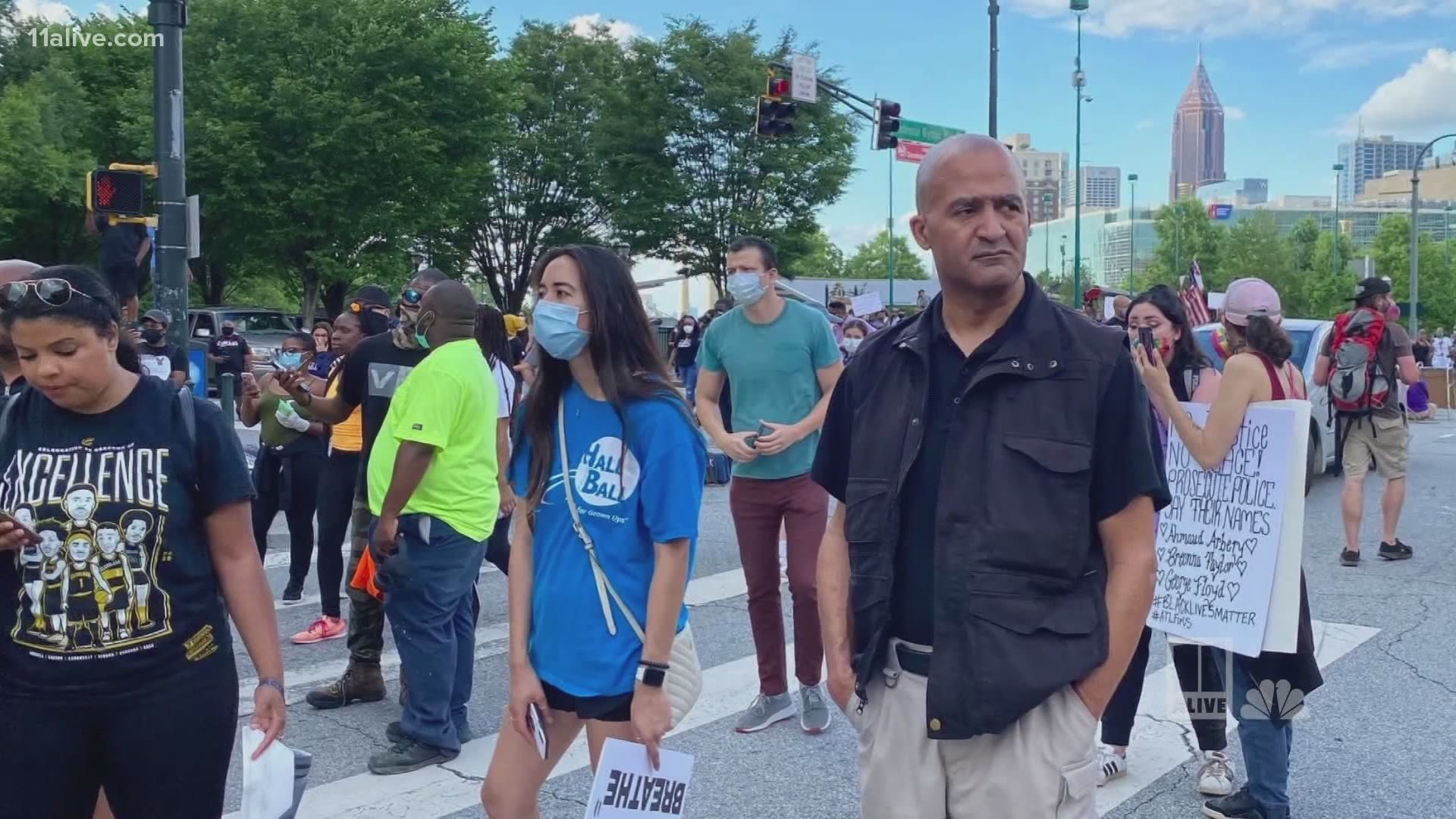ATLANTA — Police culture is under a microscope unlike what the nation’s seen before. Protestors are calling for change juxtaposed with a police officer commended for saving lives during the Capitol riot.
He wasn’t just any police officer. He is a Black man.
Retired Sheriff’s Deputy Charles Rambo, seen in this photo, is a visual representation of how Black members of law enforcement- navigate two worlds. The Black and the blue.
“I had some hesitation, I said, You know, I could be shot and killed. But I also thought it was a black man at that point in time just walking down the street, I can be shot,” Rambo told 11Alive’s Hope Ford. “I made a mature decision to get into law enforcement and understanding that I was a Black man first.”
Rambo worked for the Fulton County Sheriff’s Office for 27 years.
Influenced by other Black officers - like officer Claude Mundy, the first Black Atlanta officer to be killed in the line of duty in 1961.
“He was one of the first Black police officers to join the force. And when he patrolled in the old Fourth Ward, he got the attention of the community that they knew he was there for business. But he loved his community,” Rambo explained.
Rambo wanted to take the same approach- firm, yet loving and respectful of the community.
He started during a time when two tough on crimes policies were mainstream.
“I came up doing that mass incarceration. I also came up during the crack epidemic. I saw within the Fulton County Jail, the statistics that rang true, unfortunately, of the majority of inmates that we have with Black males,” he explained.
“I did receive backlash in all sorts of communities,” Rambo said.
Black officers tread a world where both racial slurs and calls of backstabbing are common.
“Having to be called an Uncle Tom and all other types of fun, nice type names,” he said.
But Rambo’s never felt torn.
He knows people call out of the symbol of the badge- and not always him as a person.
Rambos’ witnessed the divide between communities and police departments.
A divide that’s grown deeper from the soils of Rodney King to George Floyd.
“We have to go back and look at the intersection of race and law enforcement from a historical perspective, there's real hurt inside of communities,” Rambo said. “You get generational mindsets, they will pass on the stories that will make either the cousins, the nephews or whoever you make them angry.”
In 2017, 27 percent of white officers believed deaths of Black people during encounters with police are signs of a broader problem. Among Black police officers, that number grows to 57 percent.
“You cannot police the same way that was policed in the 40s and the 50s,” he said. “We need to come back and look at how we police and how we approach ... different communities. What is the mindset of that particular Black officer, white officer when they come across a situation? Are you really they're trying to bring justice? Are you there trying to agitate a situation?”
Although Rambo is retired, he found himself patrolling metro Atlanta in a different way.
He began to share his perspective with protestors; teaching new recruits how to interact with the public and how to avoid racial profiling. All while training kids with his Know Your Rights program.
He knows change is needed and believes it will take the law enforcement community and the public to make that happen.
“Wherever there's a challenge, there's an opportunity,” Rambo said.
“We need to paint more than less as a brighter future that will take us away from where we came from law enforcement from the days of slavery, we were the days of segregation through the days of civil rights or the days of George Floyd, we've got to change this, I have a child of my own," he added. "And I want to make sure that I'm training and that I'm giving her the right emotional intelligence and putting her in a position for the right opportunities.”
Not just that.
“I cannot do a disservice to opposite Mundy or others who came before me and not carry on with trying to make improvements to leave the profession better than what I found. So that's my message to a lot of Black officers today, white officers, it doesn't make a difference, we have a total responsibility to make sure that our profession is more legitimate, legitimize in the 21st century.”

